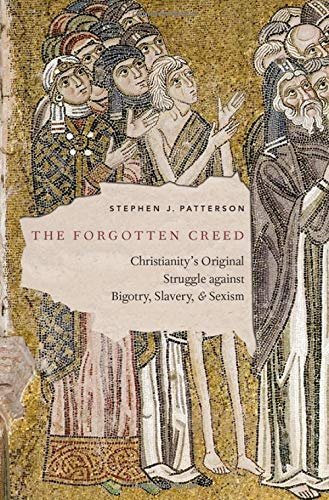
I came across The Forgotten Creed as a recommendation from Diana Butler Bass on Twitter. Given that I was reading a number of books on systemic racism, I decided to add it to the list. It did not disappoint!
A Tale of Two Worlds
We live in a world of divisions built on otherness, specifically race, class, and gender. In The Forgotten Creed, Patterson seamlessly blends together exegesis with historical analysis. He argues that Galatians 3:28 is an ancient Christian baptismal Creed describing the essence of Christianity revolutionary worldview. One that denounces division and embraces a divinely intended oneness.
There is no longer Jew or Greek, there is no longer slave or free, there is no longer male and female; for all of you are one in Christ Jesus.
Galatians 3:28
”The Forgotten Creed” and My Work
Why do I find this work so compelling? In my dissertation, I took up the task of reimagining my understanding of the divine through the lens of Jesus. This is the work summarized in my ebook, Connecting the Bible’s Dots. Sign up for my email list and I’ll send you a copy.
I applied this work with a reading Romans as if Paul wrote it with Jesus‘ understanding of God. In the years since, I am learning to reread all of the Bible through this lens. The Forgotten Creed offers a Pauline take on what I encountered in the Lukan Jesus.
Challenges with “The Forgotten Creed”
As someone coming out of a conservative tradition I have yet to explore more critical readings of the Bible. Patterson’s conclusive statements on texts that are authentically Pauline versus those that were written later but used his name to gain authority threw me. But this fails to bother me for two reasons:
- I fail to see how this changes a direct reading of Galatians 3.
- Contextualized readings eliminates most of the conflicts that pit a more conservative Paul against his more radical writings. For me, the radical Paul always wins out.
That said, I’ll soon read another recommendation from Diana Butler Bass on Pauline authenticity. Stay tuned for the review.